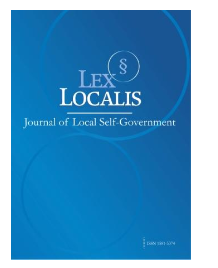EVALUATION OF THE POLICY FOR ACCELERATING POVERTY ALLEVIATION IN NABIRE REGENCY, CENTRAL PAPUA (2019-2024) USING THE CIPP MODEL
DOI:
https://doi.org/10.52152/b5mjs785Keywords:
Poverty, Policy Evaluation, CIPP Model, Nabire Regency, Public Policy.Abstract
Poverty in Nabire Regency, Central Papua, remains a major challenge despite its rich natural resources. This study evaluates the poverty alleviation policies for the 2019–2024 period using the CIPP (Context, Input, Process, Product) evaluation model. A qualitative method with a descriptive evaluative study approach was used to analyse the socio-economic context, policy inputs, implementation processes, and programme outcomes. Findings indicate that poverty alleviation policies in Nabire involve nine main programmes, such as Direct Cash Assistance (BLT), the Family Hope Programme (PKH), and infrastructure development. However, their effectiveness is hampered by weak monitoring systems, low data accuracy, insufficient community support, and programmes that are not aligned with local wisdom. For example, BLT is considered ineffective because it is misused for non-productive consumption, while food diversification programmes have failed due to a lack of understanding of local culture. The implications of this study emphasise the need for a holistic approach that integrates socio-cultural aspects, institutional strengthening, and multi-stakeholder coordination. Policy recommendations include community engagement, improving data accuracy, and developing specific regulations to ensure programme sustainability. This study contributes to the public policy literature by highlighting the importance of context-based evaluation in poverty alleviation.
Downloads
Published
Issue
Section
License
Copyright (c) 2025 Lex localis - Journal of Local Self-Government

This work is licensed under a Creative Commons Attribution-NonCommercial-NoDerivatives 4.0 International License.








